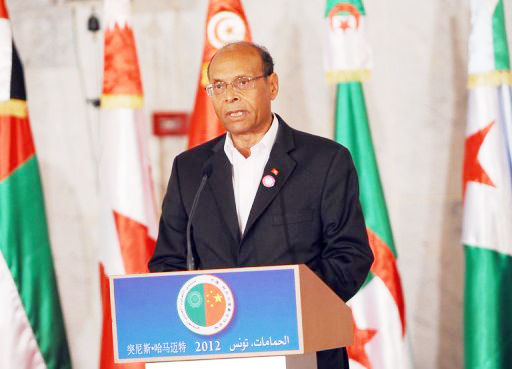PRINCETON: Transparency seems to be the word of the day in a wide array of policy domains. But is greater transparency always good?
Ever since the financial crisis erupted in 2008, there has been a call for “greater transparency” in financial services. The financial-reform law passed by the United States Congress last month requires improved transparency from banks and other financial-services firms. Moreover, thanks to the hard work of Oxfam America and the Publish What You Pay coalition, the law also requires oil and mining companies — both US and foreign — that want to raise capital in the US to disclose their payments to the governments of countries in which they operate.
For many poor countries, wealth in natural resources is a curse rather than a benefit. Corrupt rulers can use the billions they receive from oil and mining corporations for personal extravagance, or to buy arms for troops to crush democratic resistance movements.
Of course, transparency alone cannot prevent this, but it will show everyone how much the rulers are getting, and who is funding them. This, one hopes, will change the attitude of corporations that enrich themselves by paying dictators for the right to extract valuable resources that belong to the whole country. Throughout the world, to receive what one knows are stolen goods is a crime — except, it seems, when the goods are stolen by dictators from the people they dominate.
A different form of transparency received much more attention last month. Wikileaks, which describes itself as “an anonymous global avenue for disseminating documents the public should see,” released 92,000 documents related to the war in Afghanistan, including military reports on incidents, and intelligence reports.
Wikileaks has, over the past three years, published a variety of sensitive documents, ranging from the American military’s manual for operating its prison in Guantánamo Bay to evidence of corruption in Kenya and the dumping of toxic chemicals off the coast of Africa. It also published a list of Web sites that the Australian government proposed blocking, the extreme-right British National Party’s membership roll, an analysis of a major Icelandic bank’s default risk, and video footage of a US helicopter attack in Baghdad that killed 12 people, including a Reuters journalist and photographer. But posting the Afghan war reports was its most controversial move yet.
The New York Times, together with The Guardian and Der Spiegel, was given a chance to study the documents before they were released, and decided to publish some of the material. Its editors argued that while the decision to publicize secret material is always difficult, these documents were of “significant public interest” and “illuminate the extraordinary difficulty of what the United States and its allies have undertaken in a way that other accounts have not.” US Senator John Kerry, a leading Democrat who supports the war, has said that the documents may “underscore the stakes” in the conflict, and make it more urgent to “make the calibrations needed to get the policy right.”
Wikileaks founder Julian Assange has suggested that the documents could form the basis for prosecuting war crimes committed by US forces against Afghan civilians. Others, including President Barack Obama, have said that the documents “don’t reveal any issues that haven’t already informed our public debate on Afghanistan.”
There is a clear parallel between the recent Afghanistan leaks and Daniel Ellsberg’s release in 1971 of the Pentagon Papers, which helped the American public understand how the war in Vietnam was really being conducted. On its Web site, Wikileaks quotes the US Supreme Court ruling in that case: “only a free and unrestrained press can effectively expose deception in government.” Wikileaks also asserts that its leaks have already been the catalyst for “hundreds of reforms,” and that “[o]pen governance is the most effective method of promoting good governance.”
But even some supporters of open government think Wikileaks goes too far. Steven Aftergood, head of the project on government secrecy at the Federation of American Scientists, counts Wikileaks among the enemies of an open society because of its failure to respect the rule of law and the rights of individuals.
Although Wikileaks says it has withheld an additional 15,000 documents on the Afghan war in order to remove names and other means of identifying individuals who might be placed at risk, the Times of London revealed that in some cases sufficient identifying details were in the documents already released. Assange has said that he deeply regrets any harm that the released documents may cause, but has defended the release nevertheless. And the Wikileaks Web site points out that while openness may lead to some highly visible bad consequences, what we fail to see are the consequences of not publishing, and the way in which a climate of openness makes it more likely that governments and corporations will act more ethically.
But how much openness is too much? In Latvia, an artificial-intelligence researcher in the University of Latvia’s computer science department who earlier this year leaked confidential records on the income of bank managers has been praised as a modern “Robin Hood,” because otherwise the public would not have known how much some people were continuing to be paid while their banks were being bailed out with public funds. Each year in Norway, the government publishes the income and wealth of almost every taxpayer. Is that too much transparency? If so, why?
In a world in which terrorists have committed atrocities and threaten to commit more, to seek complete government transparency is utopian. Sometimes it is possible to do good only in secret. Yet on the whole, a more transparent community is likely to be a better one — and the same applies to a more transparent world.
Peter Singer is Professor of Bioethics at Princeton University and Laureate Professor at the University of Melbourne. His books include Practical Ethics, One World, and, most recently, The Life You Can Save. This commentary is published by DAILY NEWS EGYPT in collaboration with Project Syndicate (www.project-syndicate.org).

